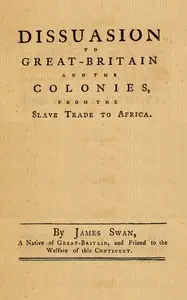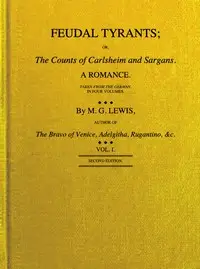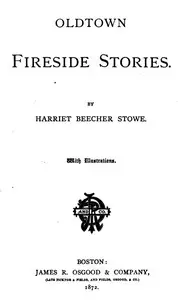"A dissuasion to Great-Britain and the colonies, from the slave trade to Africa" by James Swan is a philosophical treatise written in the late 18th century. This book effectively combines a moral argument with a critique of the slave trade, arguing against the practice as both unChristian and detrimental to the societies involved. It seeks to highlight the inhumanity of slavery and the moral obligations of those living in a society marked by liberty and Christianity to condemn such practices." Swan’s treatise is structured around a strong moral foundation, presenting arguments that challenge the legality and morality of the slave trade using the laws of God, the law of nature, and practical disadvantages it brings to both Africa and British colonies. He contends that enslaving fellow humans not only contradicts divine laws—citing scriptural admonitions—but also leads to brutal consequences for African societies, who are drained of their populations through war and enslavement. Moreover, he discusses the physical and psychological abuses endured by slaves during their transport and in plantations, aiming to awaken the conscience of his readers. Ultimately, Swan calls for an abolition of the slave trade, advocating for a more humane and just approach to commerce with Africa that respects the dignity of all individuals. (This is an automatically generated summary.)

A dissuasion to Great-Britain and the colonies, from the slave trade to Africa
By James Swan
"A dissuasion to Great-Britain and the colonies, from the slave trade to Africa" by James Swan is a philosophical treatise written in the late 18th ce...
James Swan was an early American patriot and financier based in Boston in the 18th and 19th centuries. He was a member of the Sons of Liberty and participated in the Boston Tea Party. Swan was twice wounded at the Battle of Bunker Hill, he next became secretary of the Massachusetts Board of War and the legislature. During the time he held that office, he drew heavily on his private funds to aid the Continental Army, which was then in dire need of funds to arm and equip the soldiers who were arriving in Boston from all parts of New England. In 1795, Swan, acting as agent for France, helped refinance the United States’ debt to France, which amounted to 2,024,900 dollars. The US government gave him, as agent for France, newly issued US Government interest-bearing shares equal in value to the amount due on the French debt. Swan then arranged the sale of the shares to investors and the payment of the proceeds to France. In effect, the US replaced its debt to France with the US’s obligations under the new shares owned by private investors. The United States no longer owed money to foreign governments, although it continued to owe money to private investors both in the United States and in Europe. This allowed the young United States to place itself on a sound financial footing. On principles of loyalty, he spent 22 years—more than a quarter of his life—in the Paris Sainte-Pélagie Prison.













